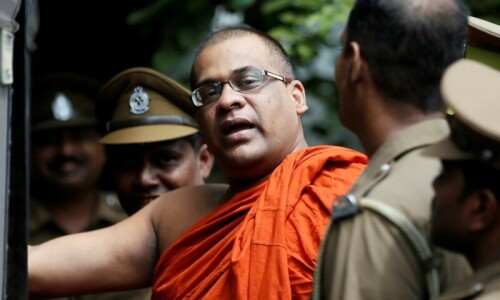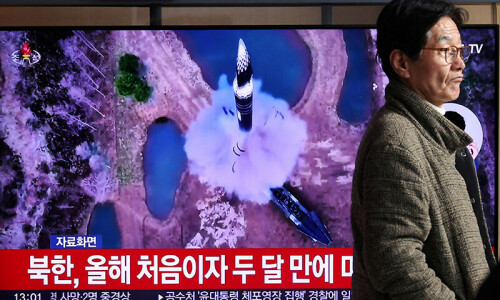KARACHI: An alarming number of haemophilia patients have tested positive for hepatitis C, hepatitis B and HIV at a screening and vaccination camp currently in progress in the metropolis, indicating how sale and purchase of unsafe blood continues to imperil human lives.
The camp is organised by Haemophilia Welfare Society (HWS) in collaboration with the Sindh health department’s programme for communicable diseases and Sindh Blood Transfusion Authority (SBTA) in Nazimabad.
During the first two days, 96 out of 242 patients (40 per cent), most of them teenage boys, have tested positive for three major viral infections — 91 for hepatitis C, three for hepatitis B and one for HIV.
“It’s a wake-up call for authorities to check sale of unsafe blood and demonstrate ownership towards patients with bleeding disorders by setting up units at public sector hospitals to provide them with safe plasma for transfusion,” said Dr Munira Borhany, medical director at the National Institute of Blood Diseases (NIBD) and chairman of the HWS medical board.
Substandard screening kits, illegal sale of unsafe blood continue to put lives at risk
Widespread infection indicated that the blood banks patients were frequenting did not have the standardised kits for screening.
“Apparently, they were using inexpensive substandard kits, just to save money, putting at risk so many lives,” she said.
About the next step, Dr Borhany said patients identified with infection would have a PCR (Polymerase chain reaction) test for disease confirmation before their referral to any specific health facility for treatment.
“This news is a major setback for patients already living a compromised life and the whole family. The new infections are very serious and need proper treatment,” she said, adding that haemophilia patients can lead a normal life if provided with the specific clotting factor the blood lacked.
A total of 900 haemophilia patients are registered with HWS, Karachi, that caters to the needs of patients across Sindh. The remaining patients would be screened in coming days.
Inquiry into cases begins
Responding to Dawn’s queries, SBTA director Dr Durre Naz Jamal said her department was looking into each case of infection and help families get treatment for the reported infection from a government facility.
“We are taking the medical history of each infected patient. However, what I can say on the basis of my experience that I gathered during my investigation into the HIV outbreak in Ratodero a few years back is that families at times in haste take their patients to small clinics and labs for blood needs instead of going to a blood bank or a dedicated centre for treatment,” she said.
Sharing details of authority’s operation, she said SBTA regularly took action against illegal banks on complaints and sealed them. “I advise families to only visit dedicated centres for treatment or blood banks after seeing the licence issued by us. There are also mafias operating in and around healthcare facilities that need to be checked.”
About the use of standardised kits, she said these screening tools were checked on inspection.
Currently, there are 101 registered blood banks in Karachi and 68 in the rest of Sindh.
Best treatment for patients
Explaining the disease and the challenges faced by haemophilia patients, Dr Borhany said it’s an inherited disorder in which the blood didn’t clot properly. It often remained undetected till the child experienced unexplained and excessive bleeding from cuts or injuries.
“Only then, the family takes the child to a doctor and the illness is confirmed through tests,” she said, adding that patients with bleeding disorders had no option but to rely on private facilities to meet their blood needs since no government hospital offered them ‘treatment’.
According to her, transfusion of fresh frozen plasma to haemophilia patients was an obsolete method and today the best way to treat these patients is to replace the missing blood clotting factor so that the blood can clot properly.
This is typically done by injecting treatment products, called clotting factor concentrates, into a person’s vein. This method reduces chances of adverse effects and viral infections that are high in plasma transfusion.
“These injections are too costly and beyond the reach of most patients that frequently need this support. Also, there is no government facility to offer specific blood clotting factors to patients,” said Raheel Ahmed, a haemophilia patient and founder of HSW.
About society’s work, he said it received these injections in limited quantity from World Haemophilia Federation, besides getting screened plasma from NIBD, Indus Hospital and Hussaini Blood Bank. “All funds are generated by families whose loved ones suffer from the blood disorder. We appeal to the government to provide us with anti-haemophilia injections, the safest way to treat the disorder.”
Published in Dawn, April 2nd, 2022












































